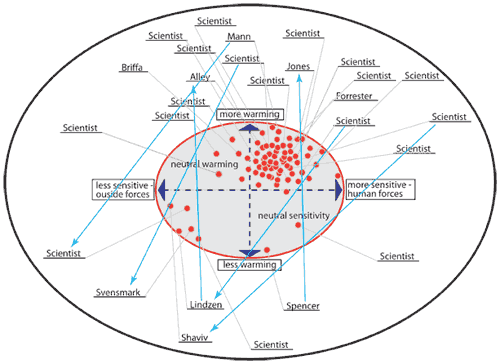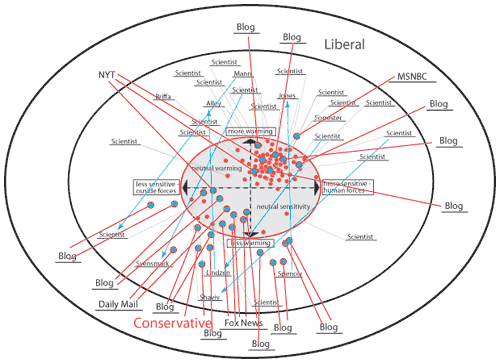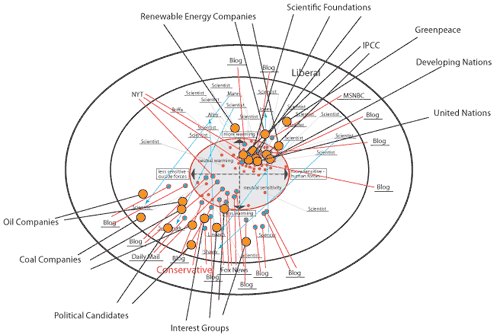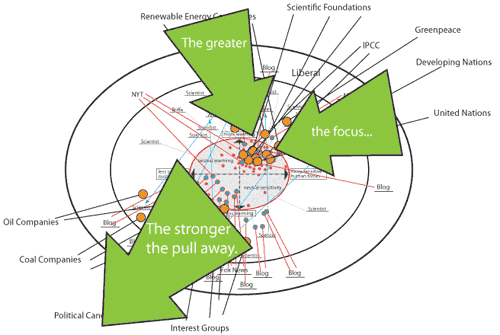Why does Anthony Watts drive an electric car?
Posted on 3 June 2010 by Rob Honeycutt
Guest post by Rob Honeycutt
In my last posting on Skeptical Science I cast myself as a spectator in a kung fu match observing the bare knuckle conflict over the famous hockey stick. Since that time (what, two weeks) I've not managed to complete any courses in physics or climate science. I've earned no degrees. I still do not hold a PhD in any field of science. None-the-less I maintain a strong interest in this issue. This time around I cast myself as a sort of Stan Laurel to you smarter Oliver Hardy's of the science world. Maybe, in this position I can help illuminate something new to the world of climate change. If I get this horribly wrong please feel free to pull my derby hat down around my ears in the comments section.

Fig 1. One of Laurel and Hardy's famous routines where Stan uses his thumb as a lighter. Don't try this trick at home kids.
I want to take up an issue that has perplexed me for a while. Why is it that deniers choose to deny climate change? The overwhelming evidence is in support of anthropogenic climate change being real. But the opposition to the science is fierce! In fact, it seems that the more we understand about climate and it's relationship with CO2, the more fierce the opposition becomes. Shouldn't this be the opposite? Shouldn't the science being more and more sure produce more acceptance of the issue? Apparently not. I believe this counter intuitive result is embodied in one of the fiercest deniers on the planet. Anthony Watts. He claims to drive an electric car because it costs less. But he also has a 10 kw photovoltaic array on his roof which, at this point, has cost him more for energy that just pulling from the grid. I mean, Watts up with that?
To begin to try to explore this I've created a diagram of what I believe goes on in science. Again, from my non-scientific perspective, this is what I understand about the process. On any given science there is research performed to better understand that topic. Scientists produce studies, review material, create conclusions. Slowly a picture emerges. Old ideas that don't fit are discarded (sometimes begrudgingly) but the reality of the matter slowly becomes more clear. There are always differing opinions. Researchers critique each others work (blue arrows). Some put forth studies that try to reject the general consensus. But ultimately we accept what the greater body of evidence tells us. This, I believe, is what works well about science. This is how we have come to understand a great deal of the world around us.

Fig 2. The Sphere of Peer Reviewed Science
In this diagram (Fig 2) I'm trying to paint a general picture of the state of climate science as it stands. This is not a detailed study so I'm not trying to make any definitive statements about the positions of any of the people whose names I've used. I'm trying to paint a picture that gives a sense of where the science is. I've spent some time reading a fair number of scientific papers on various aspects of climate change. What I'm getting out of it is that current warming is real and it is primarily through anthropogenic CO2. Of course, in science, it's not a black and white question so there are people producing results that show a variety of nuanced answers. But I believe the predominant peer reviewed science is pointing to the upper right quadrant of more warming and human influence. There are, of course, contrarians also doing good research that are producing results that suggest less warming and less influence from man-made sources. But these are far fewer.

Fig 3. The Realm of Modern Media
If the issue was the evolution of various species of dinosaurs or aspects of continental drift, from the outside world it would be a non-issue. Scientists might wage a fierce battle over whether birds were once dinosaurs but the general public is largely not going to care much. It makes for an interesting moment in a Hollywood movie. But climate change is different. Because it has an economic factor it also becomes a political issue. If it's a political issue then people take sides. The battle lines are drawn. Now, if you believe AGW is real then you're a liberal. If you believe it's not real then you're conservative. It doesn't matter if you are or not. Those are the lines that have been drawn.
In this diagram (Fig 3) the inner sphere is the world of real science. The outer sphere is modern media interpreting science. I use the term "modern media" in a very specific way. The internet has dramatically changed the way people get information. Essentially, now, you can take a position and find the news that fits your preconceived notions of what you want to believe. Media has become less an interpreter of issues and more a bunker from which sides take aim to bombard issues. Admittedly, from my own biased standpoint, I see one side trying to present the science of climate change, with some extremes that fall outside of the science, but I think they are trying to highlight the findings of science. The other side, while often trying to point out the contrarian aspects of climate science seem to take a great deal more liberty with the facts. They act to try to pull the public perception of the issue away from legitimate science.

Fig 4. Ideological Influencers
This graphic is getting increasingly complex and I hope, as Stanley, not to bang too many of you in the back of the head with my 2 by 4 as I work my way through this logic. Have a little patience, I think it'll make sense.
Moving on, in Fig 4 I see backing up each of these sides are larger financial and ideological interests. These are the big guns. These are the parties that drive or fund the opposing sides on the issue of climate change. Again, from my likely biased perspective, I see one side trying to push the predominant scientific position and one side going far outside the science. I do believe that both sides stray from the core science but I believe the conservative side take a great deal more liberties with the scientific facts. But I believe there is a reason behind these positions.
In Fig 5 I'm showing the resulting dynamics that come from this battle of ideologies. When you step back from the picture it really doesn't matter how correct the science of climate change is. The more conclusive the science gets, and the more the left hammers on how conclusive the science is, then the further and further the right will move to counter that position. I'm not trying to say this is right or wrong. It just is.
Sometimes I hear people say that it's going to require dramatic climatic events to "prove" to the general population that climate change is real. I don't think that will even work. It will only serve to push the side opposing the general scientific consensus further away. Political divides will greatly widen perhaps with disastrous consequences. What kind of awful conundrum is this? By doing more research into climate change and by being more assured of climate change we might be pushing the world toward a worse outcome?
Again, I go back to Anthony Watts. According to his website he loves his little electric car. He hates everything about climate science but loves that electric car. I've had other similar experiences where I (all too often) get into debates online with climate change deniers. I have a favorite Youtube video that I pass along from Oregon Public Television of a guy who has converted a 1972 Datsun into an electric dragster. He takes his little Datsun out to the drag strip and knocks the proverbial socks off the muscle cars. Why? Electric motors have full torque from zero through ~13,000 rpms. Electric engines, turns out, kick frickin' butt!
Every time I get a climate change denier to watch the video this odd transformation takes place. Suddenly, well, all the climate science is still bunk but I've made a buddy. They start talking about how energy independence is a good idea. They say they aren't against clean energy. They like it, in fact. It's the right thing to do. They want an electric car that kicks frickin' butt. They want US jobs. They want to pay less for energy. They want everything that is totally in line with all the solutions to climate change. Ironically, I think Anthony Watts probably does too.
This is where the magic is. At risk of comic over simplification (watch out, here comes that 2 by 4 again), I think it's basic human nature. We are monkeys who like stuff and this is the mistake being made. People have it in their heads that climate change means they're going to lose their stuff. Want to start a fight? Tell someone they have to give up their SUV. Want to win that same fight? Give them something better.
There is an excellent TED talk given by Bill Gates on climate change where he says, "We need miracles." He is exactly right. The science is clear. Global warming is real and is a serious concern. But if we want to leave a better world for our grandchildren we need to make the Anthony Watts of the world happy. We need to give them solutions. Cheaper, cleaner energy. Butt-kicking electric cars. Domestic jobs. The same thing we all want.
I don't want to suggest that anyone let up on the facts of climate change. But I would like to suggest that the solution is not only about knowing. The solution is in the world we create in response.
As Stan would say with a nod of his head, "That's right, Oli."































 Arguments
Arguments
























 0
0  0
0






Comments